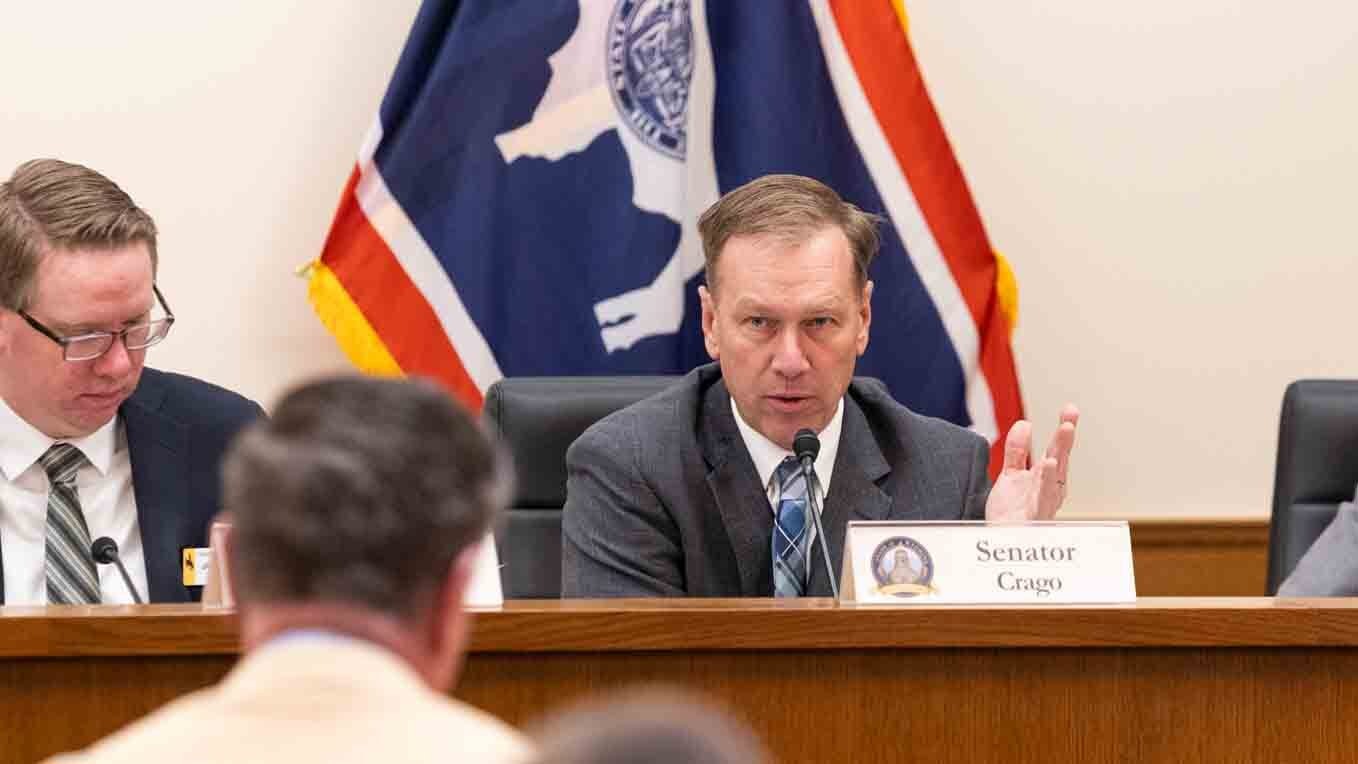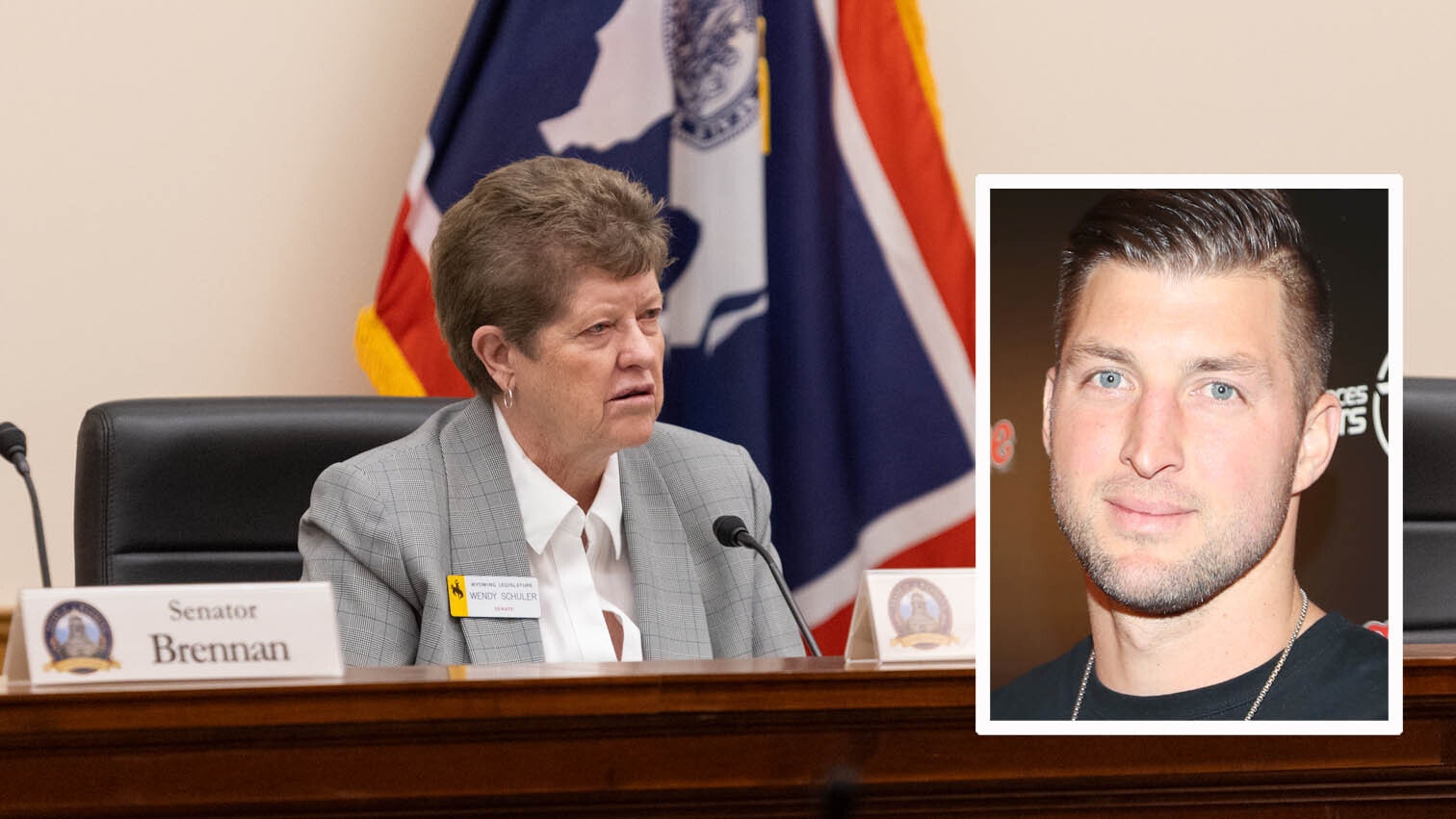A bill that instructs Wyoming public schools to notify parents about changes to the health status of their children, including help in gender-transitioning, passed the Senate Education Committee on Wednesday morning.
The committee voted 4-1 to advance Senate File 9.
‘Opt-In’ To Health Services
A significant change was made to the bill, titled Parental Rights In Education-1 on Wednesday, requiring parents to opt-in to their children receiving specific nonemergency health care services in Wyoming public schools, instead of the previous direction of the bill to let parents opt-out.
Under SF 9, each school district shall make available to parents and guardians any health care services offered or provided at the student's school. If consent is granted to a health care service, it shall not waive the parent's or guardian's right to access the student's educational or health care records or to be notified of a change in the student's physical, mental or emotional health or well‑being.
State Sen. Bo Biteman, R-Ranchester, successfully added the amendment on a 3-2 vote, allowing parents to “opt-in” to a list of nonemergency health care services rather than the current “opt-out.” This is a similar trend to what has happened in some Wyoming school districts regarding student access to certain sex education books.
Laramie Democratic Sen. Chris Rothfuss was the lone dissenting vote on the bill, speaking against almost all its aspects. Rothfuss said he considered the opt-in portion “the most important change to the bill.”
Biteman has previously said the primary inspiration for SF 9 was the case of two Rock Springs parents asking a federal court to stop their school district from allegedly helping to gender-transition their high school student without informing them.
“The reason this bill is before us is because we’re having issues with this very issue,” Biteman said.
Former teacher and 2022 State House candidate R.J. Lennox said the bill won’t do anything to improve communication between teachers and parents.
He said there needs to be more communication between these parties locally and at school board meetings rather than trying to solve the issue with the creation of a new state law. Lennox said ample communication between teachers and parents already exists, so it’s not necessary for the Legislature to get involved.
“You’ve got to build that trust, and I believe that happens in those districts at the local level,” he said.
Biteman countered, and said the purpose of the bill is to give local school boards direction.
“The bare minimum is, parents need to be informed,” he said.

What About Emergencies?
Another one of the key debates about Parental Rights In Education-1 on Wednesday was whether SF 9 would prevent school nurses from offering care to students in emergency situations.
State Sen. Charles Scott, R-Casper, who chairs the Senate Education Committee, successfully passed an amendment clarifying that the bill would not apply to school personnel administering first aid or health assistance for emergency-type situations.
But Janet Farmer, a Cheyenne school nurse and Wyoming director to the National Association of School Nurses, said some ambiguity still exists about what exactly qualifies as “first aid.”
She also said requesting school nurses to look up and list to parents every service they provide to every child, as required in the bill, would be extremely difficult at best, as some nurses treat up to 80 children per day on a wide variety of medical symptoms. Farmer mentioned that some of these treatments are emergency responses that require quick action.
The bill compels school districts to communicate to parents immediately about any changes related to their students’ mental, emotional or physical health.
Federal law does not require parental disclosure to treat student health emergencies in school, but Brian Farmer, executive director of the Wyoming School Boards Association, said mental health counseling services are generally not covered under federal law.
Federal law does require disclosure to parents when a school is collecting personal health information from students or performing surveys. Any nonemergency health screening also requires parental notice.

Parental Perspective
Rothfuss said the bill either aims to create total parental control in schools or it doesn’t, nothing in between.
Cheyenne parent Patricia McCoy said the bill lacks teeth by not delineating any punishment for school officials who defy the proposed law.
If a parent or guardian believes the new policy has been violated, they can file a complaint with their school district superintendent. If the issue goes unresolved at that level, it will be handed off to their district’s board of trustees.
Any parent or guardian who believes they were aggrieved or adversely affected in fact by a final decision of a board of trustees may seek judicial review within 30 calendar days of the decision by the board of trustees.
Lindholm said legislators should possibly steer away from defined punishments to not hurt teacher retention and recruitment efforts, but also suggested the state implement strict update standards for the policy to encourage it to be followed.
Superintendent of Public Instruction Megan Degenfelder supports the bill, but suggested adding time limits to inform parents about changes to their children’s health status.
Rothfuss said this could create complications around holiday periods and Biteman agreed, saying he wants the bill to simply provide a broad framework for local schools to work with.
“Hopefully they will take this above and beyond and prescribe a timeframe that they see fit and work it for what they see best for their district,” Biteman said. “I think less is more in this case.”
Leo Wolfson can be reached at leo@cowboystatedaily.com.





